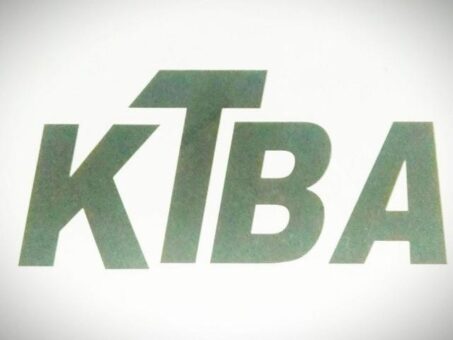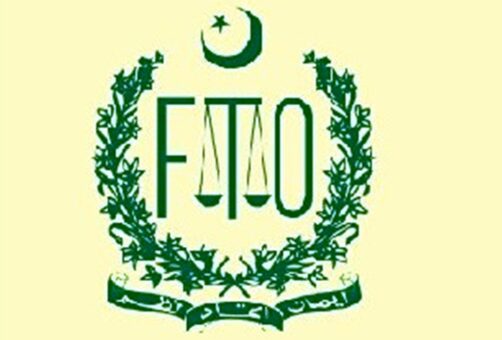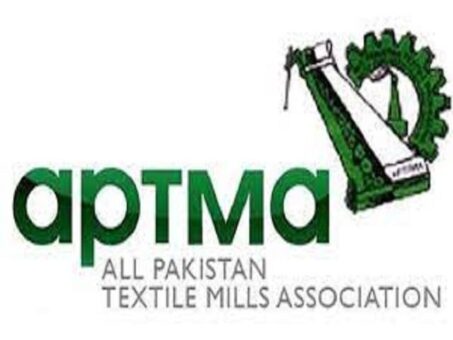ISLAMABAD: Federal Tax Ombudsman (FTO) has directed the Federal Board of Revenue (FBR) to launch probe into huge benami transactions made by M/s. Millat Tractors Limited (MTL).
The FTO, in a case against Millat Tractors for making supplies on fake and flying invoices and obtaining refunds on such invoices, asked the FBR to direct Director General Anti-Benami Initiative to probe the incidence of Benami transactions in tractors manufacturing sector.
According to the findings of the FTO, the evident from contents of the complaints, the bookings of tractors are made by commercial dealers who themselves are not the growers/farmers rather they are only carrying on the purchase and sales of tractors for profit/commission motive.
READ MORE: FTO directs country-wide crackdown against smuggled vehicles
“Tractors purchased in this manner are invoiced in the names of unrelated persons and mostly used for purposes other than agriculture i.e. industry, trolleying bricks & construction material, digging of land (housing societies), cleaning of garbage etc. so refund in such cases is inadmissible.
“Thus most of the sales tax invoices are issued in the names of benami farmers/dummy growers. This scenario is perfect benami arrangement which has already been prohibited under Benami (Transactions) Prohibition Act, 2017.”
According to the complaint the complainant highlighted that he had booked 1001 agriculture tractors from MTL on 21-06-2022, paying in advance full consideration amounting to Rs.1,252,851,600/-including 5 per cent sales tax (under serial number 25 of the 8th Schedule of the Sales Tax Act, 1990), through ninety-one (91) pay orders.
However, MTL only delivered 47 tractors to the complainant in the month of June 2022 and failed to deliver the remaining 954 tractors even after expiry of 60 days.
The complainant said MTL is involved in various bogus transactions like purchasing of fake invoices against which input tax is claimed by MTL, wherein, neither goods are physically exchanged nor payments are properly made from business accounts of genuine buyers in contravention of Section 73 of Sales Tax Act, 1990, resulting gigantic losses to national exchequer of billions of rupees with the connivance of FBR Officials. Thus the input tax claimed by MTL is also required to be probed by FBR through appropriate orders of Honourable FTO.
READ MORE: FTO directs stop unlawful recovery from taxpayers’ bank accounts
The FTO in its findings observed that following core issues need detailed deliberations:
I. Sales Tax Invoicing under law vis-à-vis Pakistan’s Tractor Manufacturing Sector Invoicing is the cardinal concept in Pakistan’s Sales Tax regime. Section 2 (40) of Sales Tax Act, 1990 defines that “tax invoice “means a document required to be issued under section 23; and section 23 further elaborates
“23. Tax Invoices.–
(1) A registered person making a taxable supply shall issue a serially numbered tax invoice at the time of supply of goods containing the following particulars, in
Urdu or English language,] namely: –
(a) name, address and registration number of the supplier; [
(b) name, address and registration number of the recipient
(c) date of issue of invoice;”
A. The above definition clearly denotes two parties in a sales taxable transaction: Supplier and the Recipient i.e. buyer and the seller or the payer and payee. Thus a valid tax invoice must incorporate the ordained particulars of both parties. However when the instant complaint is analyzed, admittedly payer remains Shahzad Riaz, the complainant but as per invoices issued by MTL, 47 unrelated persons have been shown as the payers who have neither made the booking of tractors through the authorized dealer, nor made any payment, nor maintain any business relationship with the payer and nor owned by the real payer/complainant Shahzad Riaz.
“The case appears to be classic example wherein goods are delivered to one person and invoices are issued to the other/dummy/fictitious persons.”
Authorized representatives of MTL confirmed that like all other local tractor manufacturers MTL also book sale of tractors through authorized dealers and invoices are issued as per details of buyers provided by the said dealers.
MTL’s stance that the dealer in question had obtained 47 CNICs from the complainant and submitted onwards to MTL is not only unsubstantiated it is against the legal provisions as well. When the payment through 91 pay orders made by the complainant is directly being received and credited to MTL’s A/Cs then there remains no ambiguity about the payer, especially when 47 tractors were delivered by MTL to the complainant. If for a while MTL’s argument that invoices are issued in the names of buyers whose CNICs are conveyed by the authorized dealers then the following issues may crop up;
READ MORE: FTO investigates tax collection through electricity bills
i. If the consideration is paid by one person and invoice is issued in the name of some other person and the real beneficiary remains the former; it tantamounts to a tailor made ” Benami Transaction”, cognizable under Benami (Transactions) Prohibition Act, 2017.
ii. Such an arrangement would shield the true particulars of real payer/investor by portraying the made up particulars of an unrelated person whose CNIC has been misused to conceal the transactions made by the real payer. Investments made and profits earned by the beneficiaries thus remain concealed and untaxed.
iii. Such an arrangement has neither any legal backing nor fits in the parameters of section 23 of ST Act, 1990.
iv. MTL’s assertion that this practice is prevalent in the whole tractors manufacturing sector doesn’t carry weight if the practice in question is against the clear provisions of law and it only encourages benami transactions.
v. The above referred scheme at the best conceals the true particulars of payers and at the worst aims at defrauding the national exchequer by camouflaging transactions made by commercial entities, persons in the garb of engineered purchases attributed to fake growers/farmers. On one hand it conceals commercial transactions made by non growers/farmers and on the others it paves the way for the filing, processing, sanctioning and issuance of bogus sales tax refunds by the tractor manufacturing companies.
READ MORE: President Alvi rejects FBR plea in maladministration cases
vi. MTL’s invoicing is plagued with serious flaws. Apart from the instant case in another under investigation case, (COMPLAINT NO.3858/SKT/IT/202, Dated: 29.08.2022 RO, Sialkot) the Complainant Abaid Ullah, P.O Ghondal Miani Awan, Tehsil & District Sialkot had booked a tractor on 03.06.2022 after making full and final consideration of Rs.1.953 million, inclusive of chargeable sales tax. When the Complainant approached MTL for delivery of tractor in July, 2022 the authorized dealer further demanded an amount of Rs.0.245 million quoting revised taxes on agricultural machinery w.e.f. 01.07.2022 and the Complainant had to deposit Rs.0.245 million. When the complaint was investigated by FTO Regional office Sialkot it was revealed that as the Sales Tax was waived for growers/farmers w.e.f. 1st July, 2022 therefore the sales invoice dated 22.07.2022 issued by the M/s. Millat Tractors Ltd. also reveals that no sales tax has been charged through said invoice and whole amount of Rs.2.198 million was accounted for price value of tractor. The questions which need to be explained by MTL are;
— where has gone the sales tax charged at the time of booking; and why it was not declared & deposited by MTL while filing tax return for Tax period June, 2022;
— how sales tax component was made part of the price finally charged;
— why the authorized dealer has made alleged revised taxes as an excuse for additional charge when actually ST was waived in the cases of growers/farmers.
The above referred case reveals another material fact that whenever any booking is made by a genuine grower/farmer through authorized dealers, the payment through banking instruments is made by the buyer/grower himself and invoice is issued in his own name. Such genuine instances are clearly distinguishable from the bulk of sales wherein payment is received from someone else and invoices are issued in the names of names lenders/benamidars.
vii. Thus from the above discussions clearly indicate the “neglect, inattention, incompetence, inefficiency and ineptitude of tax authorities, who though claim to be conducting audits and monitoring of MTL yet thus far failed to unearth this patently illegal invoicing system, which is not only detrimental to the interest of revenue rather it it defeats the intent of legislation to facilitate small growers/farmers.
II. Time of Supply
Like tax invoices, time of supply is also an integral aspect of sales tax regime. Section 2 (44) of ST Act, 1990 duly defines “time of supply”, in relation to,–
(a) a supply of goods, other than under hire purchase agreement, means the time at which the goods are delivered or made available to the recipient of the supply
(b) a supply of goods under a hire purchase agreement, means the time at which the agreement is entered into; and
(c) services, means the time at which the services are rendered or provided; Provided that in respect of sub clause ( a) ,(b) or (c), where any part payment is received, –
(i) for the supply in a tax period, it shall be accounted for in the return for that tax period; and
I. In the instant case though full price of 1001 tractors, inclusive of chargeable Sales Tax at that point of time was paid by the complainant in June, 2022, yet this transaction was not accounted for by MTL while filing the sales tax return for the month of June, 2022. When MTL was confronted on this account their AR’s 1st response was that time of supply is linked with delivery of goods and as booked tractors were not delivered therefore there was no need to declare the same in June 2022.
But when enquired about non declaration 47 tractors in the return of June, 2022, which were admittedly delivered in the month of June, 2022, AR had no explanation to offer. Similarly though AR is of the view that time of supply is strictly linked with delivery of goods yet he couldn’t offer any plausible reason when the aforesaid proviso was referred which obligates
“Provided that in respect of sub clause ( a) ,(b) or (c), where any part payment is received;
(i) for the supply in a tax period, it shall be accounted for in the return for that tax period;.”
According to AR this proviso is redundant in the face of main provisions of law but he failed to substantiate his assertion. His next argument was that the said proviso only covers cases where part payment is made: once again an over simplistic interpretation of law. If law is applicable on part payment, how would it ignore the incidence of full payment?
II. Moreover the AR has failed to provide any explanation as to how and under which provision of law sales tax component of payment received by MTL can be retained by the supplier for an indefinite period and how sales tax paid by the buyer can be adjusted against price differential, if any by supplier on its own without disclosing this fact in the relevant sales tax return. Thus by non declaration of whole transaction and nonpayment of sales tax recovered against 1001 tractors from the payer/complainant MTL has contravened sales tax Act and LTO Lahore failed to take any suo moto cognizance of this glaring default.
III. Departmental ineptitude can be judged from the fact that even when the department was informed (by sharing the complaint) that the respondent company has received advance payment amounting to Rs. 1,252,851,600/- including 5% sales tax from the complainant and was bound to declare this sales transaction in the tax period of June 2022, surprisingly, even after the receipt of this information the department failed to incorporate the definition of time of supply under section 2(44) of the Sales Tax Act, 1990 in the notice dated 16-08-2022, issued to MTL, specifically for the month of June 2022.
Thus as per law the respondent company was bound to declare the sales against advance (received in full) for supply of tractors in the month of June 2022 but they failed to do so in violation of section 2(44) of the Sales Tax Act, 1990 read with section 3, 23, 26 and 73 of the Sales Tax Act, 19990. LTO Lahore failed to discharge its duties diligently in this regard.
III. Payment of KIBOR plus 3%
Regarding payment of KIBOR plus 3% for failure to deliver tractors within 60 days under SRO 837(I)/2020 dated 30-06-2020, it is evident that 1001 tractors were booked on 21.06.2022 against full payment including 5% sales tax though 91 pay order by the complainant and the respondent No. 1 was to deliver the same within 60-days of the booking but he only delivered 47 tractors to the complainant though authorized dealer of the respondent company. Revision of prices apart the violation of aforesaid SRO is evident.
IV. Violations of SRO 363(I)/2012 dated 19th April 2012 and SRO 563(I)/2022 dated 29th April 2022
These SROs are related to refund to agriculture tractors manufacturers and therefore, due diligence is required while issuing refund, but respondent No. 2 has also not been able to verify the genuineness/authenticity of supply chain under section 2(33A) of the Sales Tax Act, 1990 read with section 7, 8 and 73 of the Act, ibid.
The FTO asked the FBR to direct Chief Commissioner Inland Revenue, LTO Lahore to conduct exhaustive review of the instant case so as to ensure that Section 2(4) and Section 23 of Sales Tax Act, 1990 and all relevant SROs governing tractor manufacturing sector are implemented.





